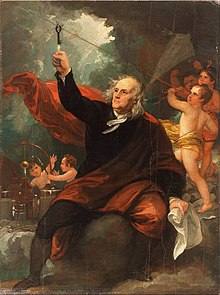At its heart, engineering is about solving problems. And for better or worse, the world won’t have a shortage of those anytime soon. One thing is certain, the future landscape of engineering will be very different from what we see today. In this blog we will talk about scope of electrical engineering in India.
From the tiny to the large, we’ve seen engineering in action to deliver drugs, build bridges, and shore up skyscrapers. In general, the kinds of problems that engineers solve depend on what we want and need.
Farms, factories, cities, and homes all rely on energy production, civil infrastructure, and communication networks for their basic functions. Society will continue to need those in some form in the future, which is why a lot of focus is put into these fields of engineering. In this blog we will talk about Electrical Engineering.
Table of contents
How Electrical Engineering started?
Electrical engineering is one of the oldest fields of engineering. In the year 1600 English scientist William Gilbert was the first to describe the phenomena off static electricity. He used the word electricals to describe this phenomenon. He also invented the first electrical measuring instrument, the Electra scope, which he named versorium in the year of 1646.
Another English scientist, Thomas Brown, give the word electricity to the world to describe his investigation based on William Gilbert’s work.

Benjamin Franklin discovered that lightening is electrical in nature by his famous kite and key experiment in the year off 1752.
Thomas Alva Edison invented the first incandescent lamp in the year of 1879 and in the year of 1882 Thomas Alva Edison switched on the world’s first electric power network that provided 110 volts DC supply to 59 customers on the Manhattan Island in New York City.
Till the year off 1882 the study of electricity was largely considered to be a soft pull off physics, as the early electrical technology was considered electro mechanical in nature.
The Darmstadt University Of technology founded the world’s first department of electrical engineering in 1882 and introduced the first degree course in electrical engineering in 1883. Thereafter, universities and institutes of technology gradually started to offer electrical engineering programs to their students all over the world.
It was not just one person who discovered electricity. There were several great minds who have contributed in the development off electrical technology. In the last decade, the demand for smartphones has driven huge developments in electrical and computer engineering. The industry is working on improving the designs of components like processors and finding cheaper ways of producing them.
Scope of Electrical Engineering in India
Electrical engineering is very broad major that encompasses a lot of sub disciplines within the umbrella of electrical engineering, there are fields like R F, which is basically wireless communications where you could work on satellite communications for defense purposes so the signal cannot be jammed by an enemy. There’s electrical engineering where you could design the circuit boards within computers or phones, or the control systems within autonomous vehicles or the circuitry for a prosthetic arm.
As it’s a broad subject not just one thing. There are other electronics engineering degree course offered at GNA University.
The subject is so broad when you ask two people who graduated in electrical engineering, they could be in two totally different fields or careers and have very little knowledge about each other’s work.
A very common misconception about electrical engineering is that you become a local electrician after completing you electrical engineering degree. Electrical engineering is not where you go in and install or repair electrical systems in people’s houses or in offices and so on.
Electrical engineers in India can secure jobs in private as well as government sector. In government sector you can get a job in power distribution, power plants, railways, aviation, metro rails, manufacturing sector etc. Also you can make a future in ONGC (Oil and Natural Gas Company), SAIL (Steel Authority of India Limited), PGCIL (Power Grid Corporation of India Limited), DRDO (Defense Research and Development Organization) and many other organizations offer jobs for electrical engineering graduates. To learn more about the scope of electrical engineering, you can get in touch with us.

Placements opportunities for private sector and many more..
What does an electrical engineering degree consists? And what can I expect from electrical engineering?
A typical electrical engineering curriculum consists of a circuit analysis classes to just get you started. Digital design, a power engineering class, continuous time signals and discrete time signals, which will get you started with analog and digital signal processing, respectively.
You can check the all the semester details for electronic and communication engineering.
Still not sure about which engineering branch is best for you. Check out our blog on “Guide To Choose Best Engineering Branch For Future Goals“ and decide for yourself.









